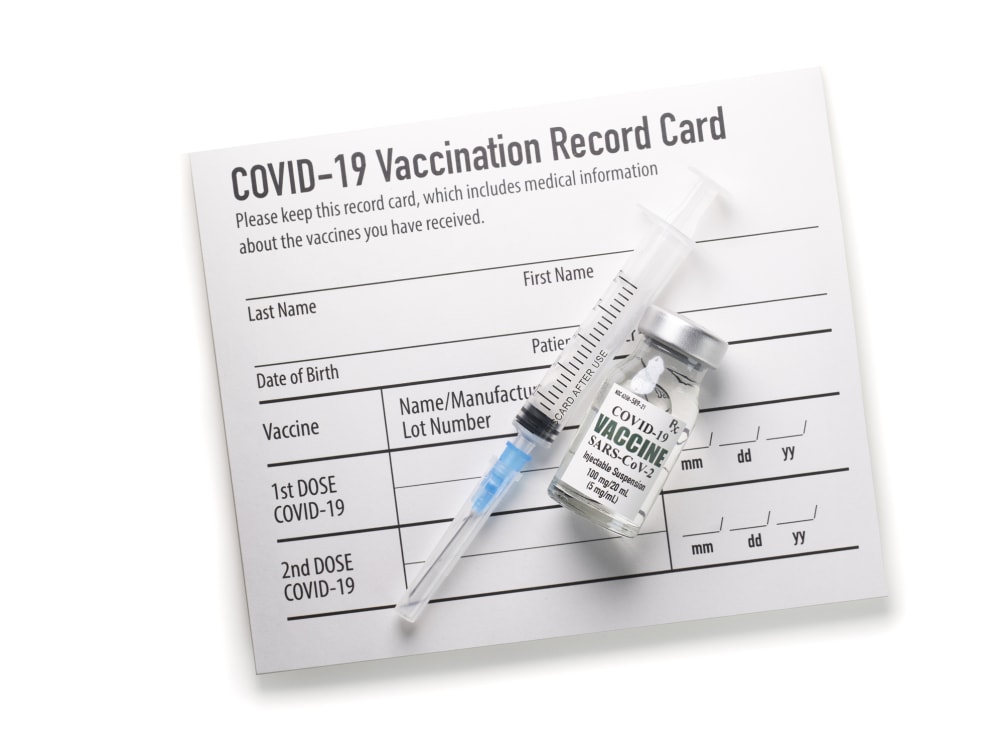EEOC: Businesses May Mandate COVID-19 Vaccinations
Companies that are making plans to reopen offices and workplaces have received a green light from the federal government that they may require returning employees to be vaccinated against COVID-19.
On May 28, the Equal Employment Opportunity Commission issued an advisory stating that employers could require vaccinations for those who are returning to the job as long as they are not “coercive” and meet other legal requirements.
It’s important to note that this assertion by EEOC is really more a clarification of existing law and policy than an announcement of something new. There’s really not a question of whether an employer can mandate that employees be vaccinated. The U.S. Labor Department’s Occupational Safety and Health Administration (OSHA) made clear in 2009 that an employer is allowed to do that.
Confidentiality of Medical Information
The more pressing question relates to legal risks that could arise when and if employees refuse to be vaccinated. Employers with at least 15 employees must abide by the Americans With Disabilities Act (ADA) and Title VII of the Civil Rights Act (CRA), both of which allow employees to claim exemptions from a vaccine requirement. Under the ADA, an employee can claim to have a disability that prevents them from taking a vaccine, and the CRA says employees can opt out if they can demonstrate “a sincerely held religious belief, practice, or observance.”
The law says that in those instances an employer must provide “reasonable accommodations” to the people who meet the standards of the ADA and the CRA and who refuse to be vaccinated.
The EEOC stated last year, however, that COVID-19 posed a “direct threat” that “cannot be eliminated or reduced by reasonable accommodation.” That meant that workers seeking exemptions from vaccination requirements were on shakier legal ground.
Employers Remain Hesitant
Still, employers remained skittish about the legal uncertainties. Early this year, the law firm Fisher Phillips conducted a survey of employers and found that only 9% were considering vaccination mandates; on the other hand, 78% were encouraging vaccinations.
In its May 28 advisory, EEOC reiterated that employers could require vaccinations if they comply with the reasonable accommodation provisions of the ADA and CRA.
But, as the New York Times reported June 1, there are other legal risks.
First, some companies say they are hesitant to require COVID-19 vaccinations because the vaccines that have been authorized by the Food and Drug Administration have still not received full FDA approval – the vaccinations are being administered under an emergency-use authorization.
“Another reason many companies remain hesitant, according to executives, lawyers and consultants who advise companies, is the long list of legal considerations the E.E.O.C says they must follow before mandating vaccines,” the Times reported.
Douglas Brayley, an employment lawyer at Ropes & Gray, told the Times, “I think the fact that it takes the E.E.O.C. several pages of notes to talk about all the steps you need to take to reasonably accommodate someone who has a disability or a religious reason why can’t get a vaccine is one of the reasons why employers might still choose not to mandate.”
Offering Vaccination Incentives
Some employers have taken a step beyond encouraging employees to get vaccinated and are providing financial incentives for them to do it – cash, time off, coupons, etc. In its May 28 guidance, the EEOC confirmed that this is OK, but drew a distinction between vaccinations that are administered by employers and those that are provided by pharmacies, clinics, and public health departments.
There are no laws restricting incentives that employers can provide employees to be vaccinated at a third-party site, the EEOC said, and if the employer chooses to obtain that vaccination information they must keep it confidential, as required by the ADA.
If a company itself provides the vaccination, the EEOC said that incentives are also OK, but that they must exercise more caution in offering them.
“Because vaccinations require employees to answer pre-vaccination disability-related screening questions, a very large incentive could make employees feel pressured to disclose medical information,” the EEOC said.
And What About Masks?
The challenges facing employers who are preparing for a return to normalcy are changing week by week. Last month, for instance, the Centers for Disease Control and Prevention said it is OK for fully vaccinated people to go maskless, which raises the question of whether companies are prepared to monitor who is wearing masks. If they do, they could be venturing into a risky legal area where they are asking employees to disclose health information.
Still, it does appear that more and more employers will be requiring in-house employees to be vaccinated as a condition of employment. Details must eventually be worked out, but the direction does seem clear.

